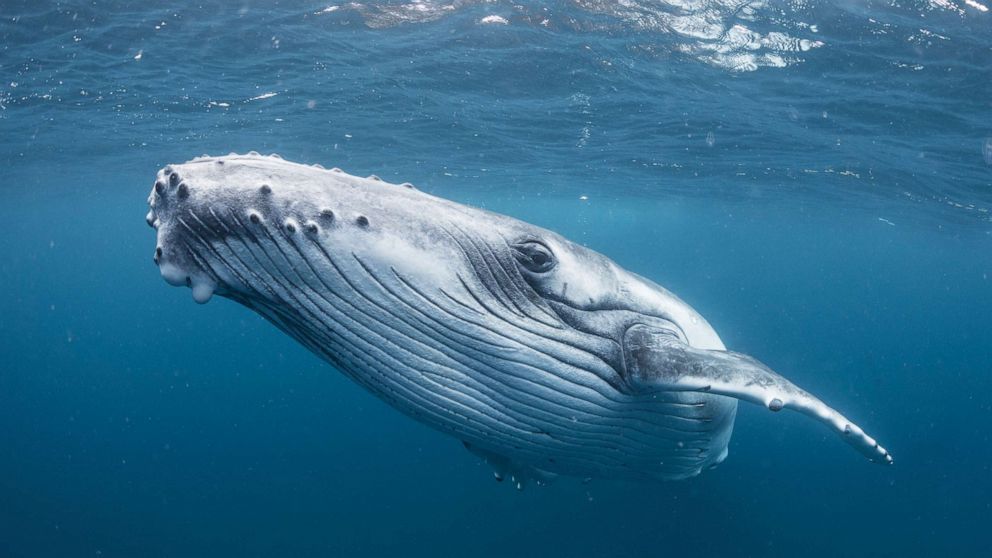Technology
How to Protect Yourself From COVID-19 Scams

As the world struggles to contain the COVID-19 pandemic, people are scrambling to find trustworthy information about the spread of the disease, how they can protect themselves, how they can get tested, and more.
Unfortunately, the spammers and scammers of the world are using the situation to take advantage of people, many of whom may be more vulnerable to their nefarious efforts than usual during these uncertain times. A handful of government agencies and other groups are stepping in to fight off the scammers. But there are still some steps you can take to avoid getting duped.
Here’s what to know about the COVID-19 scams out there, as well as some precautionary measures you can take to avoid being scammed during the coronavirus outbreak.
You can’t buy a COVID-19 “cure”
Many of the COVID-19 scams going around involve attempts by companies and individuals to sell products they claim to prevent or cure the novel coronavirus, which has already killed over 100 people in the United States alone. Scammers are peddling fake remedies ranging from colloidal silver to cow manure. But the novel coronavirus is exactly that — new — and there is no known cure yet. Vaccine trials are underway, but any scalable results are months away at best.
“I’ve seen it throughout my career as a consumer protection attorney: scam artists trying to make a quick buck off people when they’re most vulnerable,” says Congresswoman Katie Porter, a California Democrat who recently grilled Centers for Disease Control and Prevention director Robert Redfield with a series of coronavirus-related questions, eventually getting him to commit to free COVID-19 testing for every American, regardless of their insurance. “Many working Americans are juggling a lot right now — social distancing, childcare, potentially missed paychecks, and more — the last thing they want to be worrying about is bad actors taking potentially advantage of them.”
The government fighting the scammers in other ways, too. The Federal Trade Commission (FTC) and Food and Drug Administration (FDA) recently issued warnings to seven different companies — including Quinessence Aromatherapy Ltd. and The Jim Bakker Show — promoting products with scientifically unsupported claims they can cure or prevent the novel coronavirus. Should the companies continue engaging in false advertising, the FTC may seek a federal court injunction and issue an order requiring customer refunds.
“The FDA considers the sale and promotion of fraudulent COVID-19 products to be a threat to the public health,” said FDA Commissioner Stephen M. Hahn, M.D. in a statement concerning the warning letters. “We have an aggressive surveillance program that routinely monitors online sources for health fraud products, especially during a significant public health issue such as this one.”
What’s the public health concern with false cures or treatments? If people buy these products in the hopes they will successfully cure or prevent someone from contracting the virus, it could encourage them to forgo social distancing rules, potentially infecting others.
The SEC has also issued guidelines when it comes to solicitations for investments in products from publicly traded companies that can prevent or cure coronavirus (especially microcap or “penny stock” companies), stating that consumers should be cautious of companies making these unsubstantiated claims that “may be made as part of fraudulent ‘pump-and-dump’ schemes.”
Watch out for scam emails and texts, too
Phishing schemes, in which a scammer sends an email or text meant to trick you into handing over your personal info, have gotten pretty sophisticated in recent years, and can even include elements like official imagery or email addresses that look similar to email addresses used by official businesses. Likewise, phone calls and texts from scammers pretending to be official businesses may include information like your name or phone number to try to convince you that they’re real.
To spot COVID-19 email and text scams, look for generic greetings (like “Hello, Sir/Madame”), requests for confirmation of personal information, or emails related to updating your billing details to judge whether or not an email from a company is legitimate. If a message’s language seems urgent, as though it’s attempting to pressure you into giving up your information to avert some sort of data disaster, it could very well be fake. If you receive a suspicious email from a particular company or even a friend or your employer, contact them separately via phone to verify the message before replying or otherwise acting on it.
The number of COVID-related scams that will likely pop up in the coming months means we’ll all need to stay vigilant, experts say. “I’d tell people to assume every unsolicited effort to reach you or sell you something should be viewed with extreme skepticism,” says Linda Sherry, director of consumer advocacy group Consumer Action. The group offers a monthly email newsletter detailing popular new scams to watch for. “People should vet the offer by hanging up the phone, deleting the emails and then reaching out to the entity independently if indeed it is a firm you do business with,” she says. Of course, the best response to scammers is no response at all. “Never heard of ‘em, then delete, hang up and don’t worry about it,” says Sherry.
Secure your online identity now
As with all phishing scams, defending yourself from COVID-19 scams involves a combination of prep work and a little skepticism.

In the Wake of the Coronavirus, Here’s Why Americans Are Hoarding Toilet Paper
Our panic buying represents one thing we can control
The FTC recommends consumers practice proper online security, which includes backing up personal data and using two-factor authentication whenever possible to make it harder for scammers to gain access to your accounts, even if they do manage to figure out your username, password, or other personally identifiable information.
Still, if you think you gave out your information inadvertently, or that someone already has your identifiable information — like your Social Security number or bank account information — you can visit the FTC’s Identity Theft site to protect yourself from further harm and alert businesses that your identity has been compromised.
Technology
Apple unveils VR headset Vision Pro

[ad_1]

Apple unveiled its virtual reality (VR) headset, Vision Pro, Monday during its Worldwide Developers Conference.
Apple CEO Tim Cook called the headset a “new kind of computer” that augments reality by “seamlessly blending” the real world and the digital.
“It’s the first Apple product you look through and not at. Vision Pro feels familiar, yet it’s entirely new,” he said.
The product is controlled by the user’s eyes, hands and voice, Cook said.
Vision Pro will start at $3,499 and be available for purchase in early 2024.
Apple’s most direct competitor for Vision Pro appears to be Meta and its Quest headsets.
Meta, formerly known as Facebook, has put a greater focus on virtual reality and the so-called metaverse since the company changed its name in October 2021.
Last week, Meta announced its latest headset model, Quest 3, will be released later this year.
Copyright 2023 Nexstar Media Inc. All rights reserved. This material may not be published, broadcast, rewritten, or redistributed.
[ad_2]
Source link
Technology
Whales face more fatal ship collisions as waters warm

[ad_1]
PORTLAND, Maine —
Climate change is imperiling the world’s largest animals by increasing the likelihood of fatal collisions between whales and big ships that ply the same waters.
Warming ocean temperatures are causing some species of whales in pursuit of food to stray more frequently into shipping lanes, scientists say.
The phenomenon already has increased ship strikes involving rare North Atlantic right whales on the East Coast and giant blue whales on the West Coast, researchers say. The number of strikes off California increased threefold in 2018 — to at least 10 — compared to previous years.
When whales are killed in a ship collision, they often sink and don’t always wash ashore. So scientists and conservationists say fatal ship strikes are dramatically under-reported.
Vessels strikes are among the most frequent causes of accidental death in large whales, along with entanglement in fishing gear. Conservationists, scientists and animals lovers have pushed for the International Maritime Organization to step up to protect the whales, but it won’t happen without cooperation from the worldwide shipping industry.
For the right whales, which number only about 400 and have lost more than 10% of their population in just a few years, the death toll is driving them closer to extinction, said Nick Record, senior research scientist at Bigelow Laboratory for Ocean Sciences in East Boothbay, Maine.
At least three right whales died from ship strikes in 2019 — a small number, but still dangerously high for so small a population. All three deaths were documented in the Gulf of Saint Lawrence off Canada, where scientists have said the whales are spending more time feeding as waters off New England warm.
Scientists say the changing ocean environment with global warming is causing right whales and some other species to stray outside protected zones designed to keep them safe from ships.
“When one of their main food resources goes away, it means they start exploring new areas for food,” Record said. “And that means they’re encountering all new sources of mortality because they are going into these places where they are not protected.”
On the West Coast, where there was increase in whale ship strike deaths, scientists reported that the risk of such accidents has been growing in the 2000s as the blue whale population shifted northward in the North Pacific.
The increased ship strikes could necessitate “a broader area where ships don’t travel,” said Jessica Redfern, an ecologist with New England Aquarium’s Anderson Cabot Center for Ocean Life and lead author of a study published in the journal Frontiers in Marine Science in February.
Moving shipping lanes, and the possibility of enforcing slower speeds for large ships, is a subject of much debate among conservation groups, international regulators and the shipping industry.
Shippers say they have made attempts to work with conservationists, such as an ongoing effort to move a shipping lane in Sri Lankan waters to protect blue whales. In a statement to The Associated Press, the World Shipping Council expressed a willingness to keep working to keep shipping activity away from whales, but expressed skepticism about whether slowing vessels would help.
“Reduced ship speeds also increase the residence time of a ship in a given area where whales are active,” the council said. “Given those factors, there is some notable uncertainty about how effective reducing ship speeds is in lowering the risk of whale strikes.”
Changes to international shipping laws would have to go before the International Maritime Organization, which regulates shipping. The organization has taken numerous steps to protect whales in the past, including agreeing in 2014 to a recommendation for ships to reduce speed to 10 knots (11.5 miles per hour) off the Pacific coast of Panama for four months every summer and fall.
A spokeswoman for the organization declined to comment on the role of warming seas in increased ship strikes. But the subject has caught the attention of the National Oceanic and Atmospheric Administration, which oversees marine issues in the U.S.
Right whales, in particular, began showing a change in migratory behavior around 2010, said Vince Saba, a fisheries biologist with NOAA’s Northeast Fisheries Science Center. That happened as warm Gulf Stream water has entered the Gulf of Maine, a key habitat for the whales, he said.
“With that redistribution, the animals have moved into areas where there weren’t management rules in place to protect them. In a sense, the deck got reshuffled,” said Sean Hayes, head of the protected species branch for the fisheries science center.
Whales also face increased threat because ships now can travel in parts of the sea that were previously ice, said Regina Asmutis-Silvia, a scientist with Massachusetts-based Whale and Dolphin Conservation. As waters continue to warm, the whales will need more protections or the number of deaths will only grow, she said.
“The reality is that it’s time to actually implement the mitigation and that’s going to mean expanding areas where the speed rules would be in place,” she said.
———
Follow Patrick Whittle on Twitter: @pxwhittle
[ad_2]
Source link
Technology
Update to the latest Telegraph Android app

[ad_1]

We are no longer supporting this version of the The Telegraph app. You will need to update to our new app to continue accessing The Telegraph’s content. Please click here.
The new Telegraph app is available on Android 4.1.4 and later.
Our new, faster app delivers all of the content you love plus more:
-
A customisable menu so that you can select the news topics that matter to you.
-
A Top Stories channel highlighting our editor’s choice of the day’s key stories.
-
Notifications on the big news stories so you’re always in the know.
-
Beautiful design and simple usability, so you can scan the headlines at a glance and browse with complete ease.
Should you have any feedback or questions please visit our dedicated help site or email us at appfeedback@telegraph.co.uk.
[ad_2]
Source link
-

 Politics5 months ago
Politics5 months agoFEMA Staff Accused of Withholding Aid from Trump Supporters After Hurricane – Calls for Hate Crime Charges and Jail Time Emerge
-

 Entertainment5 months ago
Entertainment5 months agoGeorge Clooney’s Final Stand: Hollywood Icon QUITS Politics for Good After Kamala Harris’ Slip and Trump Triumph
-

 Politics1 year ago
Politics1 year agoTucker and President Trump explore Bedminster and talk about “America’s favorite sport” and what happens if you misbehave at Bedminster
-

 Politics5 months ago
Politics5 months agoPolish President Andrzej Duda Reportedly Visits Mar-a-Lago to Meet with Donald Trump
-

 Politics1 year ago
Politics1 year agoEXPOSED: JOE BIDEN TRAGEDY ADULT VIDEO PUBLISHED BY TUCKER!
-

 Politics5 months ago
Politics5 months agoTrump’s Bold Move: Dan Bongino for Secret Service Director? The Inside Scoop on Security and Threats!
-

 Politics5 months ago
Politics5 months agoFormer Disney and Pixar Designer Sentenced to 25 Years for Child Exploitation and Human Trafficking
-

 Politics5 months ago
Politics5 months agoTrump’s Bold Move: Appoints Hardline Border Czar to Launch Mass Deportations – “Kamala, You’re FIRED!
-

 Politics5 months ago
Politics5 months agoMSNBC in Flames! Pelosi Blames Biden for Kamala Endorsement—A Turning Point for the Democratic Party?






